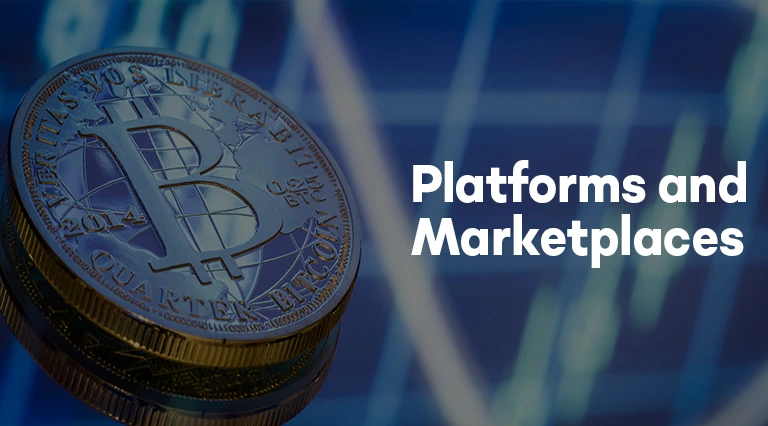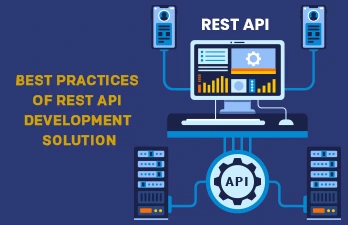Blockchain technology has been greatly transforming various industries offering many new opportunities for all kinds of businesses. By using blockchain technology, financial and banks firms will easily verify the identities of clients, speed-up all the global transactions exchange, and also protect their important data. The real estate industry has also detected many situations where it can gain more benefits from blockchain technology. Even the Logistics businesses nay also improve the security and transparency of the supply chains. The government has also implemented this technology to improve data exchange mainly in the public sector. Also, the energy sector has also discovered how to make use of distributed ledgers for enhancing their services.
Ways how Blockchain has transformed the Real estate industry
Blockchain technology is transforming the real estate industry as it provides transparency, security, and a lot of benefits. Let’s find out how Blockchain technology has transformed the Real estate industry.
Platforms and marketplaces

Real estate technology is mainly focused on listings as well as connecting with sellers and buyers. Also, blockchain offers many advanced techniques for trading real estate and also allows online marketplaces and trading platforms to assist real estate transactions in a more comprehensive way. For instance, ATLANT has created a platform that makes use of blockchain technology for offering rental property and real estate transactions. With the tokenization of real property, it is easy to trade assets similar to a stocks exchange as well as various can be transactions online.
No intermediaries

Brokers, banks, and lawyers are a great part of the ecosystem of real estate for a long time. Also, blockchain will soon assist in a transformation in the roles as well as involvement in real estate transactions, based on the report given by Deloitte. Latest platforms may also eventually presume functions like payments, legal documentation, and listings. Eliminating the intermediaries can certainly result in sellers and buyers obtaining more money as they will save a lot on fees and commissions charged by the intermediaries. This certainly makes the entire process much faster as the back-and-forth of the middlemen will be minimized.
Liquidity
Real estate is being known to be an illiquid asset as it will take some time to conclude the sales. When you consider tokens and cryptocurrencies this is not the situation as they will be automatically traded for paper money via exchanges. Also, by using tokens, real estate will be easily traded. A seller need not wait for the buyer who is capable of affording the entire property in order to obtain some value from their property.
Fractional ownership
By permitting fractional ownership, it is easy to minimize the barriers to blockchain for real estate investing. Also, investments will need a great amount of money upfront for obtaining property. Also, investors can collect their money to obtain higher ticket properties. By using blockchain, investors may need to access the trading app for selling and buying tokens to see if they fit. Additionally, fractional ownership will assist them in avoiding the management of the properties themselves like leasing and maintenance.
Decentralization
Blockchain directs security and trust to be decentralized technology. Data stored in the blockchain will be easily accessible to all users on the network which makes the data immutable and transparent. The user only needs to return back to the housing bubble crash in the year 2008 to view how the shortage of transparency in the institutions will have destructive consequences. The decentralized exchange is having trust created within the system. As the data will be easily verifiable buyers, sellers, and users will have great confidence to conduct transactions. Fraud attempts will also be minimized. Smart contracts will ultimately become admissible records with Arizona and Vermont passing that kind of legislation. Hence, smart contracts will be having great enforceability far off the technology itself.
Costs
The transparency of a decentralized network will minimize the down costs of real estate transactions. Along with the savings obtained by minimizing the commissions and fees of intermediaries, there will be various other costs like registration fees, inspections costs, taxes, and loan fees of the real estate. All these costs will differ based on the territory having jurisdiction. Similar to intermediaries, these will be minimized or completely removed from the equation because platforms will automate all these processes making them also a part of the robust system.
Conclusion
Blockchain has brought great changes to the real estate industry and it is becoming more accessible to a wide range of users. Also, real-estate services are becoming secure, more transparent, and cheaper. Nextbrain Technologies is the leading Blockchain development company providing high-quality blockchain solutions and customized apps, especially for real estate companies all over the world.
Recent Insights
- Why choose React Native for mobile app development
- Innovative mobile app ideas & latest trends for the sports industry
- The future of web development with AI
- Video analytics: Delving deep to its applications and opportunities
- A complete guide to AI object tracking with DeepSORT
- Nextbrain giving platinum sponsorship for golden tree awards, dubai



Saran
Author
Views : 1414 | Posted on April 14, 2022